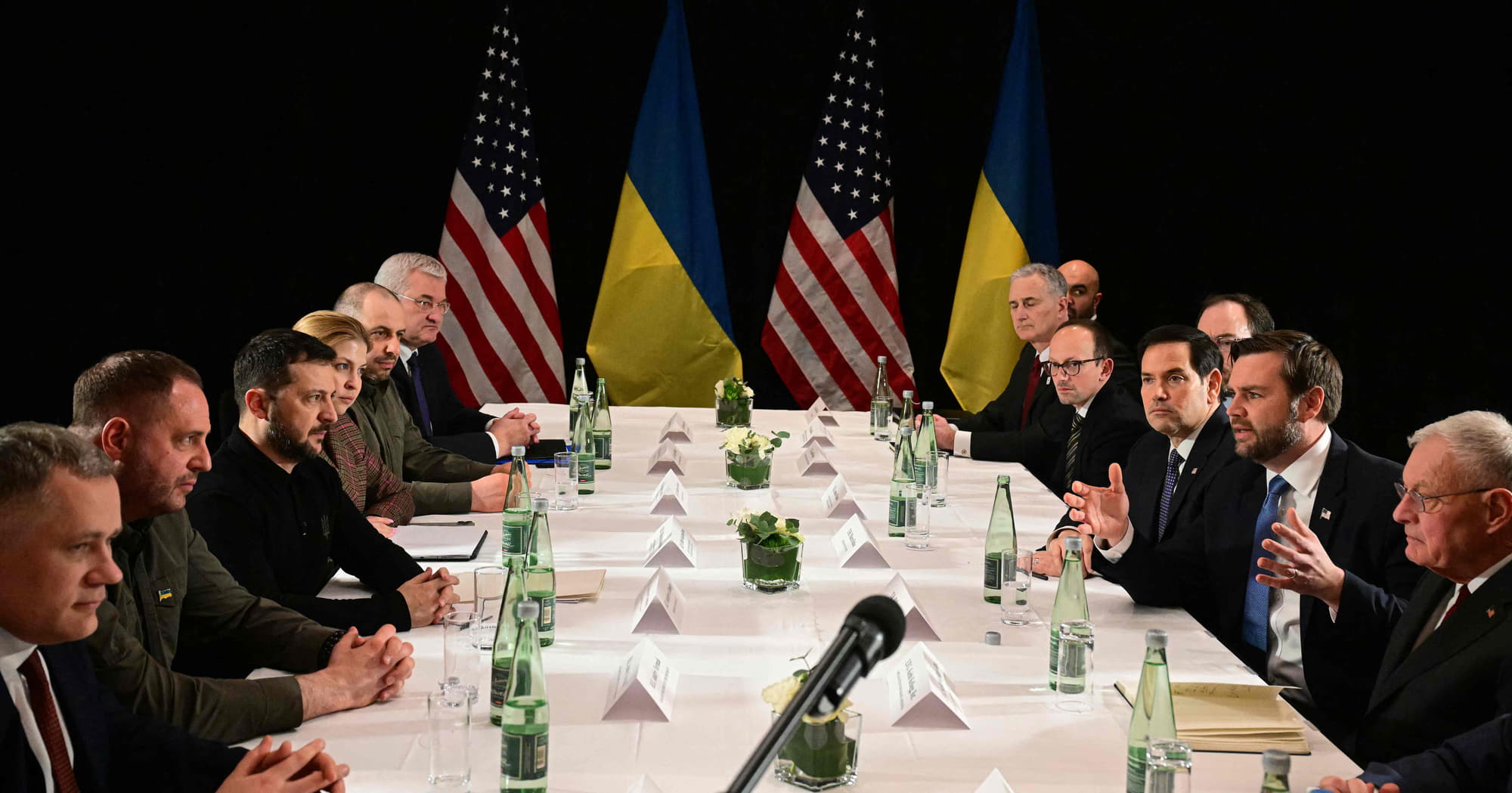Crucially, the beneficiaries on the American side would not be the US government but private investors. The specific companies involved were not determined at this stage. Instead, the US proposed setting up a trust fund to which Ukraine would transfer the rights to develop its resources. This fund would then select the American companies who would extract – and profit from – Ukraine’s minerals.
Notably, the current draft does not appear to have been prepared by the US Department of Energy or the State Department but by Trump’s private legal team, which seemingly failed to distinguish between intergovernmental agreements and commercial contracts.
Uh huh. Well, that sounds pretty sketchy.
EDIT: I’d also add, setting aside the whole Ukraine angle, that that doesn’t look all that great to me in conjunction with the FCPA suspension, if Trump’s legal team is off looking to cut arrangements out-of-band from the bureaucracy with foreign governments to benefit unspecified private parties in the US. That is, for at last six months, the major legal restriction on American companies on bribing foreign governments is suspended.
On February 10, 2025, President Donald Trump issued an executive order and accompanying fact sheet directing Attorney General (AG) Pam Bondi to, for a period of 180 days (1) effectively halt the initiation of new Foreign Corrupt Practices Act (FCPA) investigations and enforcement actions and (2) undertake a detailed review of any such existing matters with an eye toward “restoring proper bounds” on enforcement.
I realize that most folks here are probably interested in the impact on Ukraine, but that’s got some serious issues for the US as well.
To be blunt, that’s a lot of potential money to be changing hands between private parties without record being made of what terms are going on, where decisions on US policy are involved. The only reason that I’m aware of that we’re aware of this in the US is because Ukraine disclosed the offer. I don’t know whether Trump’s legal team might be writing up other contracts potentially involving other countries.
sounds pretty sketchy.
and that’s just saying it nicely. The whole thing stinks imo.
The last piece of the storyr really sort of details this US administration way of negotiating, and it smells mafia style/Putinesk.
edit: seems like your edit makes it even sketchier.
I was curious about what kind of degree of Congressional clout is required to initiate an investigation into Executive Branch activity. Apparently, though this was a while back, during Trump’s first term, Trump wanted the Executive Branch not to provide information on Executive Branch activity to Congressional oversight except under some limited cases:
In 2017, the Trump Administration’s Office of Legal Counsel (OLC) at the Department of Justice (DOJ) issued a guidance memorandum to agencies regarding the Executive Branch’s duties to respond to and comply with congressional oversight and investigative inquiries, whether accompanied by a subpoena or not. One might think, given that the President was a Republican and he was facing a bicameral Republican majority in Congress at the time, that the guidance would have favored glass door policies and open communication in favor of truly “draining the swamp.” Instead, the guidance stated that there are only three entities to which the Executive Branch has the duty to reply: a House of Congress in its entirety, a committee or subcommittee of jurisdiction, or an aforementioned committee or subcommittee’s chair.
According to the OLC in this memorandum, the constitutional authority to oversee the Executive Branch can only be conducted officially “by each house of Congress or, under existing delegations, by committees and subcommittees (or their chairmen).” Thus, an investigative inquiry from any individual member of Congress other than a committee or subcommittee chair, regardless of his or her political weight, seniority, or caucus leadership “is not properly considered an ‘oversight’ request” as “[i]ndividual members of Congress . . . do not have the authority to conduct oversight in the absence of a specific delegation by a full house, committee, or subcommittee.” Only those who speak or “act on behalf of congressional committees” may conduct official oversight. Because there is no delegation of authority to an individual member, the OLC reasons, his or her in- quiry “does not trigger any obligation to accommodate congressional needs,” especially since it “is not legally enforceable through a subpoena or contempt proceedings.” Therefore, only those congressional inquiries which are accompanied by a subpoena—or supported by the threat thereof—are owed a response. All other responses, the OLC opinion says, are left to the discretion of the agency.
That is, he really didn’t want senators or representatives being able to obtain information on what the Executive Branch was doing unless the above conditions were true, was asking for minimum cooperation with Congressional oversight, which I think means that someone requiring such information would need to hold a majority in at least one house, since I think that the chairs of committees are always from the majority party.
kagis
Yes (well, this is specific to the Senate, but I expect that the House is the same):
https://www.senate.gov/about/origins-foundations/committee-system/committee-assignments.htm
Since the 1950s, Senate and party rules have gradually changed to distribute coveted committee seats more broadly throughout each party conference. Seniority still matters, however, and the majority party member with the greatest seniority on a particular committee traditionally serves as chair.
So I don’t think that as things stand, Congressional Democrats can actually initiate investigations as long as there’s a trifecta – they require at least some Congressional Republican support.
https://crsreports.congress.gov/product/pdf/IF/IF10015
Okay, here’s a Congressional Research Service report, which I’d take to be fairly neutral:
Minority Party and Individual Member Authority to Conduct Oversight
The role of minority party Members in the oversight process is governed by the rules of each chamber and its committees. Minority Members are specifically accorded some rights. For example, House and Senate rules provide the minority on a committee a limited right to call witnesses of their choosing at a hearing, and all members of House committees are guaranteed up to five minutes to question each witness.
Ranking members and individual Members (other than committee chairs) are not authorized by chamber or committee rules to initiate official committee hearings or investigations or issue subpoenas. However, individual Members may seek the voluntary cooperation of agency officials or private persons and perform their own oversight, though these activities may be more difficult without the compulsory powers belonging to the committee
They can call witnesses once hearings are initiated, but that sounds like the only way to conduct an investigation of Executive Branch activity is to get a majority of at least one legislative house onboard. Hmm.
Reminds me of the beginning of Zelenskys presidency in 2020 when he refused the deal with Trump to investigate Hunter Biden. Trump really believes he can get Ukraine to do anything for him.
The telegraph article is very thorough, and doesn’t mince word. Give it a read





